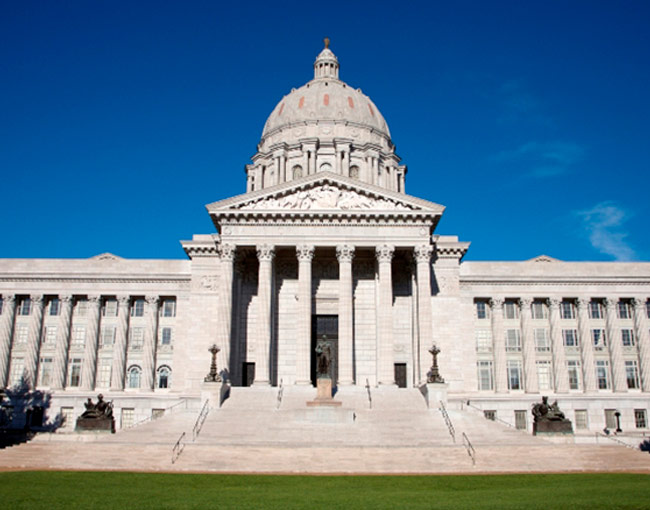A Presidential candidate who is assured of their party's nomination but has not yet been formally nominated at a party convention. In order to be considered the Presumptive Nominee, a candidate must either "mathematically clinch" the nomination by securing the support of a majority of their party's delegates or their last serious challenger must have dropped out of the race, whichever comes first.
Blank Space
Historically, the Presumptive Nominee was not always clear-cut before the party conventions. In the 1968 Democratic presidential primaries, for example, sitting Vice President Hubert Humphrey was selected at his party's convention without participating in a single primary. Largely as a result of the tumultuous conventions of the 1960s and the Watergate era, both parties reformed their candidate selection processes to rely more strongly on the results of state primaries and caucuses. Candidates could thus claim to be the Presumptive Nominee as soon as they had the required number of delegates or all of their opponents dropped out of contention. For the last 40 years, the Presumptive Nominee has been known for both parties well before the convention, except in the case of the 1980 Democratic National Convention, when Senator Ted Kennedy contested President Carter's nomination.
Shake It Off
Since 2000, many states have attempted to "front load" their primaries by moving the date of their contest to as early in the calendar as possible. States typically view this as a way to garner more attention for their election, which can increase the national prominence of their voters and bring in local tourist and advertising dollars. In 2008 and 2012, the presidential contests started on January 3.
Early contests can allow candidates to move through the primaries quickly and claim the title of Presumptive Nominee. George W Bush (2000), Al Gore (2000), John Kerry (2004), and John McCain (2008) all became their party's Presumptive Nominee in early March, while it took Barack Obama (2008) until June to claim the title. This cycle, Donald Trump became the GOP's Presumptive Nominee following the departure of his last two rivals after the Indiana primary in May, and Secretary Hillary Clinton clinched the title last week.
Bad Blood
Becoming a Presumptive Nominee gives candidates and their campaigns time to consolidate their primary opponents' supporters and unify their party. This was the case last week when Secretary Clinton was crowned the Presumptive Nominee and swiftly started to draw support from the biggest names in her party, including the President. But campaign finance laws prohibit a candidate from using general election funds, which are collected separately from primary election funds, until they have been formally nominated at the convention. Following a bruising primary in 2012, Governor Mitt Romney struggled to raise primary funds (in the window between March and August when he could not yet use general election funds) to counter attacks made by President Obama. To avoid this, the Republican National Committee issued guidance to delay the 2016 primary calendar, while also moving up the party's nomination convention from August to July. The Democratic National Committee followed their lead to level the playing field.





